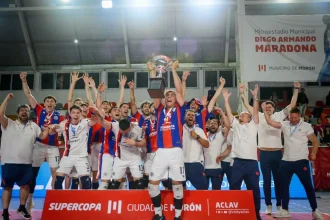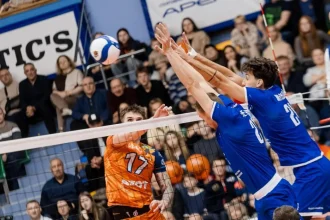Rúben Amorim’s comments about Alejandro Garnacho following his omission from the Manchester City Derby highlight a significant moment in the young forward’s development. Amorim is open about the fact that dropping Garnacho for such a high-profile match was a tough decision, but one made with the intention of helping him grow as a player. The message here is clear: Amorim’s priority is not just individual performance but the overall success of the team.
By making such a bold decision, Amorim aimed to communicate to Garnacho that he needs to improve in certain areas to earn his place in the starting lineup for crucial fixtures. It’s a tough but fair approach, which shows Amorim’s belief that tough love can often be the key to unlocking a player’s potential.
The response from Garnacho, as Amorim notes, was immediate and positive. It seems that the young Argentine forward understood the reasoning behind the decision and used it as motivation to raise his level. This shift in mindset indicates that Garnacho is maturing and beginning to understand the broader picture—what it takes to not only play at the highest level but also contribute meaningfully to the team’s success.
For Amorim, the key takeaway is that Garnacho now realizes the coach’s intentions are rooted in a desire to help him improve and to win games. This understanding is vital for Garnacho’s development, as it helps him embrace constructive criticism and focus on how to perform consistently at a high standard.
Garnacho’s change is also a sign of his growing professionalism. At a young age, it’s easy for talented players to become complacent or feel entitled to playing time based on their skill alone. However, Amorim’s decision shows that there are no guarantees, and every player must prove their worth on the field.
For Garnacho, the experience of being dropped from such an important match likely served as a wake-up call. Now, he understands that talent alone isn’t enough—his attitude, work ethic, and ability to contribute to the team’s objectives are just as crucial. Amorim’s ability to foster this understanding in Garnacho will likely serve the player well as he continues to develop in his career.
Ultimately, Amorim’s words are a testament to his coaching philosophy—one that values both individual growth and collective success. By making tough decisions like dropping a key player for a high-stakes game, Amorim is shaping Garnacho into a more mature and focused player who understands the demands of top-level football.
The fact that Garnacho has responded positively and made adjustments in his approach is a clear indicator that he is learning from his experiences. For Amorim, this is the type of player he wants to work with: someone who is willing to listen, learn, and evolve for the betterment of the team. This is a pivotal moment in Garnacho’s career, and it will be interesting to see how this newfound maturity translates into his performances moving forward.














